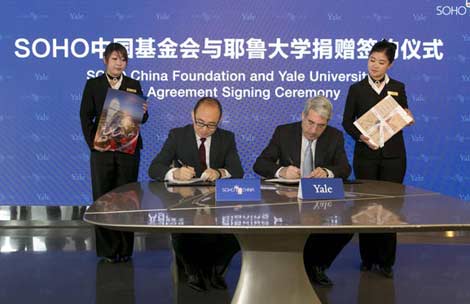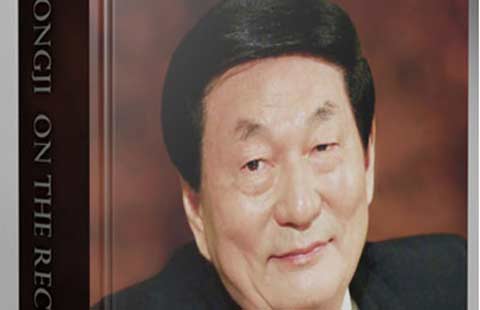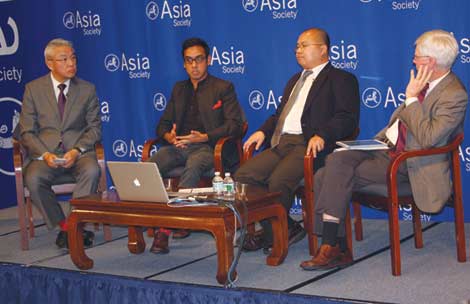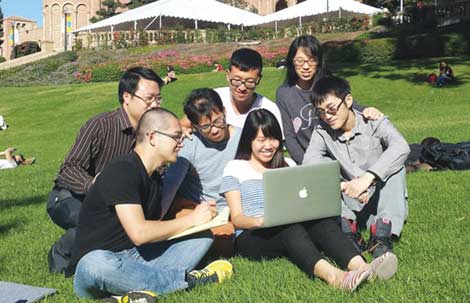Feed additives, HGPs at play in US-China beef trade
Updated: 2014-07-04 10:41
By JACK FREIFELDER in New York(China Daily USA)
|
||||||||
Beef from the United States has been banned in China for more than a decade, but officials are working to get US meat back into world's most populated country by the end of the year, according to trade officials.
China banned the import of US beef in 2003 after an outbreak of mad cow disease was reported in Washington State, but Niu Dun, China's vice-minister of agriculture, told Bloomberg News in a March interview that China "hopes for an agreement on US beef by July".
"The July date was put out there when both sides said let's try to do this by mid-2014. It does appear to be progressing, and we did have people from China over here the last couple of weeks so that's been an important step," Joe Schuele, communications director for the US Meat Export Federation (USMEF) told China Daily.
A potential hiccup for resuming US shipments could come from China's response to the use of hormone growth promotants (HGPs) and beta-agonists, he said.
Beta-agonists, a cattle feed additive, are a class of non-hormonal compounds that work by reducing the metabolism of fat in an animal's body.
And HGPs - which have been used in the Australian beef industry for more than 30 years, according to Meat and Livestock Australia Ltd – are supplements that increase muscle growth and stave off fatty deposits, while also allowing farmers to reduce production costs and increase the affordability of their cattle. They are usually administered in the form of a low dose implant on the back of an animal’s ear.
In a June 4 article in BEEF Magazine, titled Hormone Policies Snag US Reentry into Russia, China, Schuele wrote that the suspension of beef exports from Australia to China due to issues concerning HGPs could have an effect on US beef traders as well.
"From the US industry standpoint, we were aware of the policy but it's never been the headline issue when it comes to getting back into the market," he said in a Wednesday interview with China Daily. "Until it surfaced with regard to Australian beef nobody had a reason to give it much thought."
In May, China announced that it would enact stricter quality assurance measures on its beef raised with HGPs, a group that includes products from Australia.
At the time, Tom Maguire, a spokesman for the Australian Meat Industry Council, said in an interview with Australian newspaper The Land that he believed the added measures were necessary to "alleviate China's concerns" about beef supplies.
Australia, Uruguay, New Zealand, Canada and Argentina comprise the five biggest beef exporters to China - a list that the US is noticeably absent from.
But China, one of the biggest meat consuming countries in the world, may allow beef imports from Brazil and the US over the next five years to offset domestic issues in the red meat market, according to an April 2014 report by the Rabobank Group.
In an April 2014 report titled China Beefing up Imports to Supplement Domestic Production, Rabobank analyst Chenjun Pan wrote: "The Chinese government is actively seeking solutions to solve the domestic supply shortage. China's attitude towards opening markets to more countries has become more positive. And the gap in productivity is getting wider."
"Even with the expected slight recovery of domestic beef supply … China is likely to open the door to Brazilian beef in the coming months, and by the end of 2014, may open the market to US beef," the report says.
In January 2014, the US exported more than $450 million worth of beef globally, per data from the USDA and USMEF. The latest available data shows that US beef exports were valued at more than $5.5 billion for 2012.
James Robb, director of the US-based Livestock Marketing Information Center (LMIC), said it is "an important step" for China to accept the international standards for beef trade supplies.
Feed additive issues aside, Robb said that the reopening of the Chinese market to US beef may still happen in 2014. But any changes in trade flows- be it positive or negative - would stem from China's tweaks to its import policies.
"Regarding China's stance against the use of beta-agonists, specifically ractopamine, in the production of meat: (1) they already enforce that for pork; and (2) we expect they will apply the same to beef industry products," Robb said. "Clearly, if China enforces a beta-agonist ban regarding beef, that policy will limit near-term US export growth."
jackfreifelder@chinadailyusa.com
- Xinjiang publishes anti-terror brochures
- Security pact sealed with Afghanistan
- President Xi encourages international cultural exchanges
- Premier Li: China willing to help Afghan infrastructure
- Chinese FM: China, Asia-Pacific become community of shared destiny
- Foreign minister remarks on possibility of China-Japan summit
Most Viewed
Editor's Picks

|

|

|

|

|

|
Today's Top News
VW defends safety of recalled New Sagitar
Former premier makes Hurun philanthropists list
Xinjiang publishes anti-terror brochures
SOHO endows $10m to Yale
Cook and Ma talk about partnership
Language a barrier to healthcare for Asian Americans
China businesses need innovation: VC
Security pact sealed with Afghanistan
US Weekly

|

|















